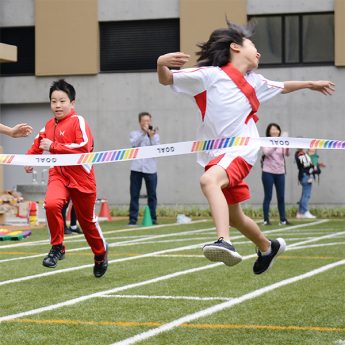Welcome to May—the month of warmer spring weather, longer days and new beginnings. While April was an exciting time for many transitioning from university to the workforce, and for staff who were promoted to higher positions within their firms at the start of the new fiscal year, it was also for many a time of intense stress and pressure.
This should come as no surprise: Japan is known as the land of karoshi (death from overwork). But how much of an impact does work-related stress actually have on individuals and firms’ bottom lines?
According to research conducted by the Japanese government, more than 2,000 citizens committed suicide due to work-related stress in the year to March 2016, while dozens more died from heart attacks, strokes and other conditions brought on by having spent too much time at work. The government even has emphasised how serious an issue this is for the Japanese labour market by stating that one in five employees are at risk of death from overwork. Further, Japan’s workforce is known to be reluctant to take time off, with the average employee only using 8.8 days of their annual leave—less than half of the standard amount.
Many of us may have looked at our Japanese colleagues and wondered why this state of affairs persists. Is it out of a sense of duty to the firm? An aversion to home life? Do they simply love their jobs that much?
In the bedroom
Hints can be found in several of the nation’s social and cultural aspects. The hierarchical nature of Japanese culture puts pressure on younger employees to remain at work for as long as, or longer than, their superiors, while the psychological push to work hard compels workers always to do their best, or at least appear to be doing so. Often, the spirit that compels people to tenaciously do their utmost puts worth in the act of trying hard, rather than in the completion of a task.
This can cause a worker’s mindset to believe that long hours, not delivered results, show their worth and value to the firm. Statistics indicate that this is true.
Recent research reveals that, despite Japan’s efforts, the country falls below productivity averages set by the Organisation for Economic Co-operation and Development. A study by the London School of Economics estimates that Japan loses $14bn each year in productivity due to depression, which is often triggered by stress.
Thus, an employee earning ¥6mn a year who takes leave for stress-related reasons can end up costing their firm ¥4mn. The financial costs of stress and mental health in the workplace, and consequently the potential savings, are real.
Perhaps surprisingly, the impact of this is reflected in the bedroom as well as the boardroom. Japan’s fertility rate is one of the lowest in the world, and recent studies have found that 30–40% of Japanese salaried workers are unable to sleep well due to work-related stress.
A 2016 survey of 7,000 individuals states that 40% of the male and female respondents were getting less than six hours’ sleep a night. More stress and less sleep mean that Japanese workers may put in many more hours than their counterparts elsewhere in the world, but for less return.
Lights out policy
Steps have been taken to address this issue at multiple levels, ranging from the sensible to the innovative. Some firms have introduced cats to relieve stress in the workplace and others have started to play “Auld Lang Syne” at the close of business each day to encourage staff to go home. Larger firms such as Dentsu Advertising Ltd have tackled the issue even more directly by adopting a strict lights out policy at 10pm.
The Ministry of Health, Labour and Welfare introduced a mandatory annual stress test in 2015 for firms with 50 or more full-time employees. While the test is not mandatory for the individual employee, it can be a powerful tool to flag at-risk staff at an early stage, thereby allowing the introduction of support systems to help avoid greater costs in productivity further down the line.
Tokyo English Life Line (TELL) can administer the stress test in both English and Japanese, and has a range of other tools that can help firms tackle stress in the workplace, and ultimately improve the firms’ bottom line.
While introducing a petting zoo to your workplace may not be a realistic option, it is important to note that the impact of stress can be greatly reduced through proactive engagement with the issue, and that there are many options available.






